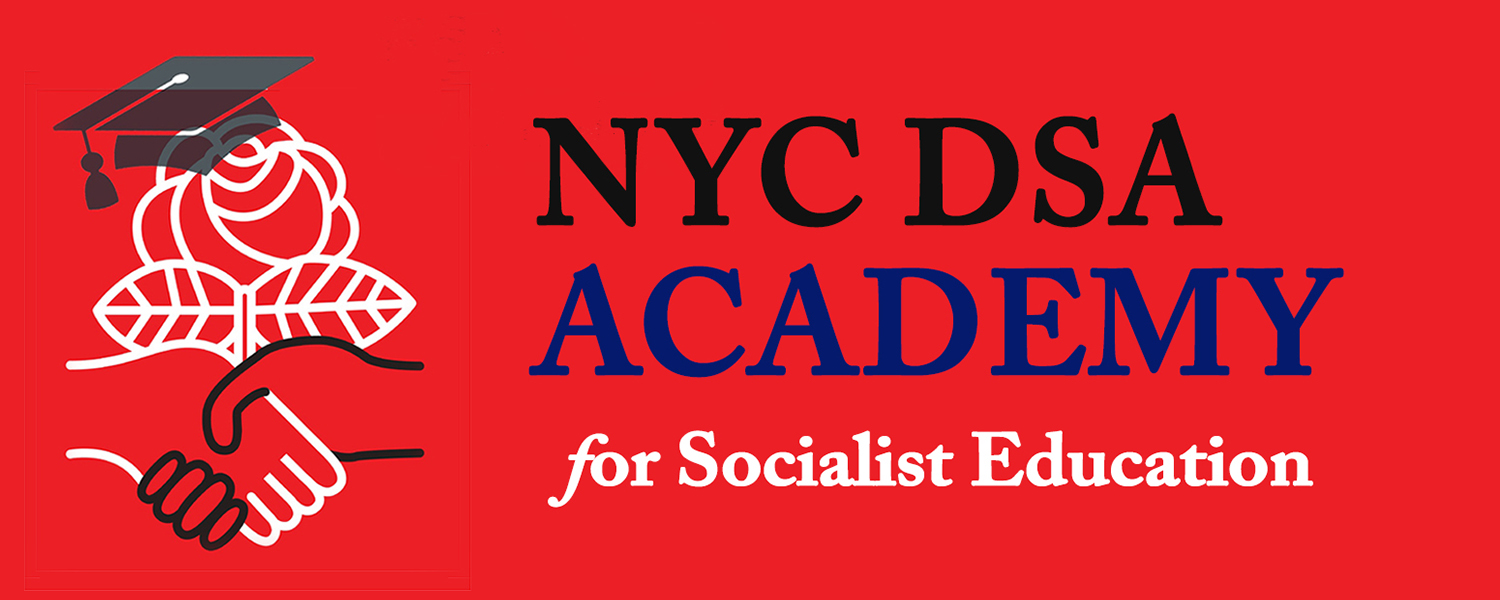NYC DSA Academy: Capitalism & Democracy

Application deadline: September 4, 2025 11:59 PM / Note: Course is in person only.
Capitalism & Democracy
Dates: Alt. Thursdays, 7–9pm • September 18, October 2, October 16, and October 30, 2025
Location: Westside YMCA, Rm. 201, 5 West 63rd Street
Course cost: $35 DSA members / $45 nonmembers
Course Description:
What is the relationship between capitalism and democracy? Are they allies or antagonists? Since the start of the Cold War, the dogma was that capitalism and democracy were mutually reinforcing. Over the last decade or so, that belief has been shaken considerably even in the metropole. The world around us prompts us to ask not only whether capitalism corrodes democratic institutions but whether capitalist accumulation requires significant curtailing of democratic politics. These questions are not new – they have been asked by political thinkers and raised by people on the streets for more than two centuries. In this course we will draw from that entangled history to ask – both historically and analytically – what is the relationship between capitalism and democracy. We will be looking at events and texts from the global periphery – where this questioning has often been more vociferous – along with those from the metropole.
First week: democracy against property. Till the middle of the twentieth century, democracy was seen as a threat to property and those who owned a lot of it. We will see how in the ancient world democracy was understood as the rule of the poor, and how over the nineteenth and twentieth century it was identified with the struggles of the workers and the propertyless, the enslaved and the colonized. Today we tend to think of democracy mostly in terms of periodic elections and rule of law. This would be a history of democracy as a far more radical form of politics, and one that was perceived as a threat to capitalism and capitalists.
Second week: the détente between capitalism and democracy. Challenged by anticapitalist alternatives, from the interwar years we see different attempts at reconciling capitalism and democracy. This required a refashioning of both democracy and capitalism– the former made more procedural, the latter more regulated. This is the period that gave us universal suffrage and welfare states, public ownership band civil rights, decolonization and development planning, and remain our unconscious reference point when we think of capitalism and democracy as mutually beneficial. We will discuss these institutions, their contingencies and contradictions, and ask why that détente did not hold.
Third week: Can capitalism be democratic? Switching gears from a study of history, in the second half of the course we will look at the relationship between capitalism and democracy analytically. This week we will study the contradictions between capitalist structures and social relations and the demands of democratic life. Is it possible to maintain capitalist accumulation under democratic conditions? Can the factory or the plantation be democratic? We will discuss both thinkers who argued that these contradictions are irresoluble and those that suggest ways that they could be reconciled.
Fourth week: Can democracy survive/ overcome capitalism? There are two related questions that we explore this week. First, what is the role of capitalism in our current crisis of democracy? More broadly to what extent can a robust concept of democracy survive a capitalist socio-economic system? Second, what is the role of democratic movements in overcoming or transforming capitalism? To what extent does a struggle for a democratic polity require a critique of capitalism, and vice versa, to what extent do critiques of capitalism need to draw from visions of democratic life.
About the NYC DSA Academy for Socialist Education
Education, broadly defined, is and always has been a vital function of revolutionary socialist movements. The NYC DSA Academy aims to enhance the ongoing political education efforts of the New York chapter of DSA. Designed to connect the history and theory of socialist struggles with the work of today’s activists, the Academy aims to offer a rigorous but accessible curriculum for working adults to develop their understanding and strategy.
